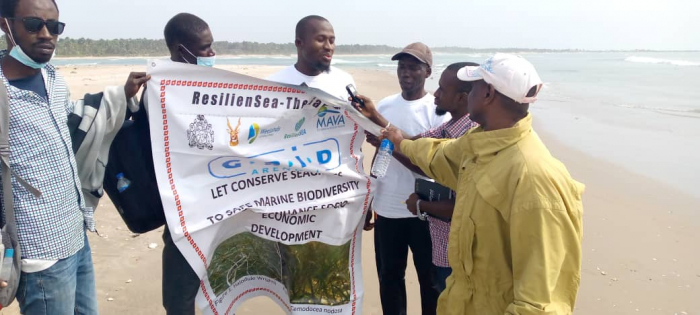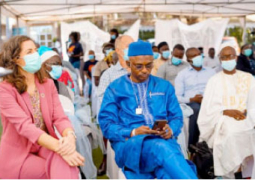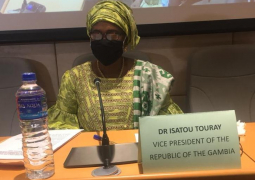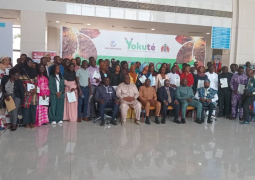
“The importance of seagrasses cannot be over emphasized. It serves as a feeding ground for fish. Most of the fish you see here is because of the seagrasses because it provides them food and it’s highly rich in nutrients. It also serves as a breeding ground for the fish, meaning the fish lay their egg on seagrasses,” he said.
Mr. Sanneh made these remarks during a visit to Kartong and Gunjur beaches in West Coast Region.
Six African countries including The Gambia are currently benefiting from the Resilience Sea Project. The sub-regional project funded by MAWA officials is a pilot one to be implemented in three phases.
Two species of sea grasses (Haodulewrightii and Cymodocesnodosa) have been identified in the country, he explained, adding that another sea grass (Zosteranoltii) could be found in the country. “Seagrasses can only be found in shallow regions and over 70 species of seagrasses has been discovered globally”, he highlighted.
Another important ecosystem service that the seagrasses provided, he added, is that it also serves as a feeding ground for turtles.
“The Gambia is a turtle hot spot ground. Turtles depend on seagrasses as their food. Seagrasses also reduce the impact of climate change. Seagrasses can also be used as raw materials in the manufacture of mattresses among others,” he further said.
He stated that seagrasses are not the same as seaweed, adding that: “sea grasses are flowering plant while seaweed is not a flowering plant.”
The Resilience Sea Project Focal Person noted that dragnet poses a great threat to seagrasses, saying that dragnet is even banned in the country.
According to Mr. Sanneh, water pollution is also a threat to seagrasses. “Water pollution is a very serious challenge for the marine environment. The level of water pollution in the country at the moment is alarming”.
He said there is a need to jealously safeguard our water from pollution.
Sanyang said there is a high probability that industries along the soil land are discharging their waste water into the sea.
“Most industries waste water contains heavy metal,” he said, adding that these are metals that are highly reactive.
Sanneh said awareness creation on the significance of seagrasses is crucial to enhance preservation of seagrasses in various communities.





